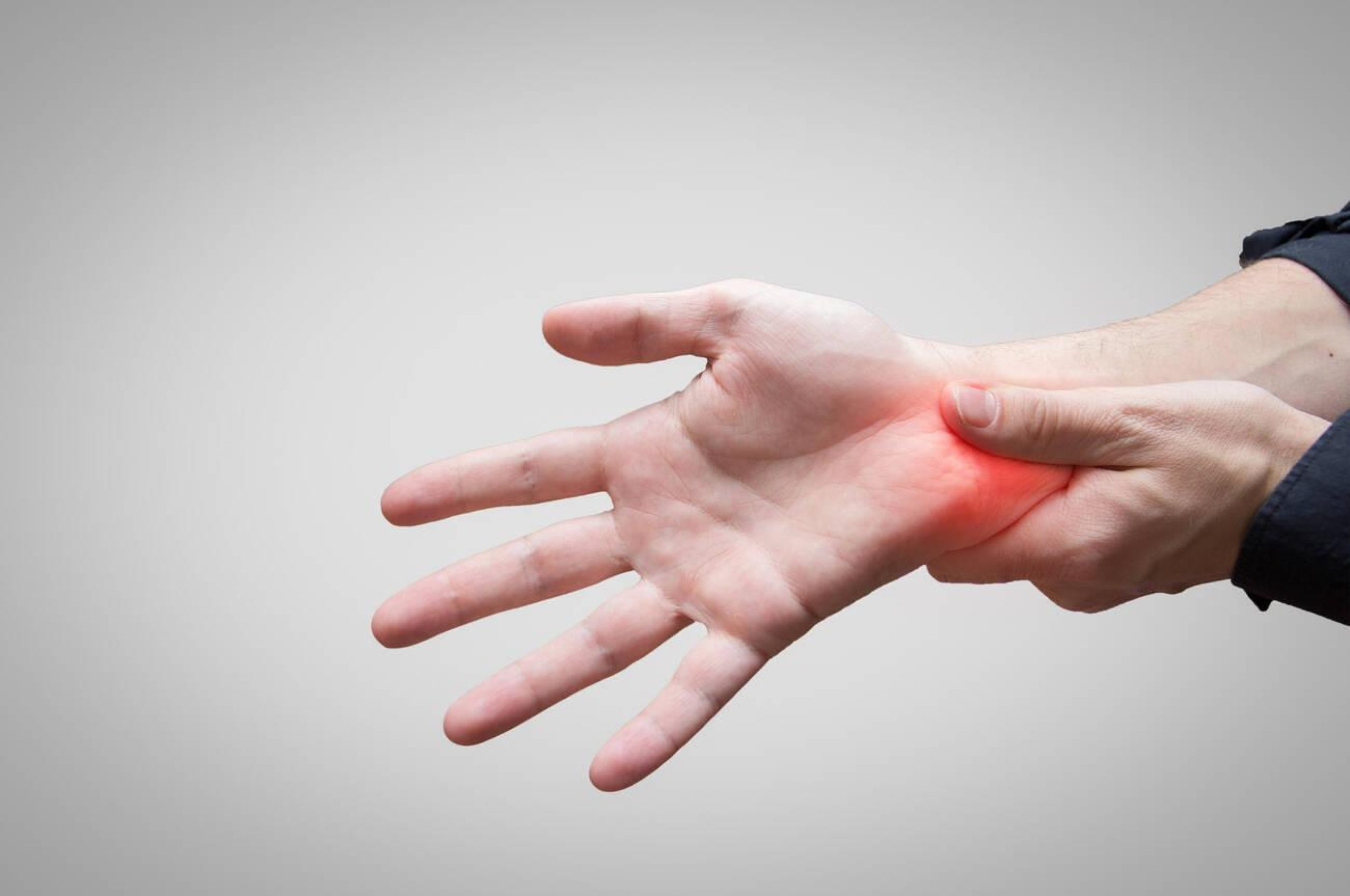Role of Physical Therapy in Treating Carpal Tunnel Syndrome
When it comes to managing carpal tunnel syndrome (CTS), physical therapy is often one of the first treatment options recommended. However, while physical therapy can be beneficial for many individuals, it’s not always the most suitable solution for everyone. Understanding when physical therapy may or may not be the right approach is crucial in determining the best course of action for long-term relief and recovery.
In this article, we’ll explore why physical therapy may not always be the best treatment option for carpal tunnel syndrome, and we’ll introduce you to Veda Medical, a leader in comprehensive care for CTS in Live Oak, Texas.
Understanding Carpal Tunnel Syndrome
Carpal tunnel syndrome occurs when the median nerve, which runs from the forearm to the hand, becomes compressed within the carpal tunnel—a narrow passageway located in the wrist. This nerve compression can lead to a variety of uncomfortable symptoms, including pain, numbness, tingling, and weakness in the hand and fingers.
Common causes of carpal tunnel syndrome include repetitive hand movements, poor ergonomics, wrist injuries, and certain medical conditions such as arthritis or diabetes. CTS can significantly impact daily activities and quality of life, making timely and effective treatment essential.
Common Symptoms of Carpal Tunnel Syndrome
- Pain and Discomfort: Pain is one of the primary symptoms of carpal tunnel syndrome, often affecting the wrist, hand, and forearm. It can range from a dull ache to sharp, shooting pain.
- Numbness and Tingling: A “pins and needles” sensation in the thumb, index finger, middle finger, and part of the ring finger is a hallmark symptom of CTS.
- Weakness: As CTS progresses, many individuals experience decreased grip strength and may struggle to perform tasks that require manual dexterity.
- Nighttime Symptoms: Symptoms often worsen at night, disrupting sleep and causing discomfort that can last through the morning.
Given the debilitating nature of CTS, finding the right treatment is crucial. While physical therapy has its benefits, it is not a one-size-fits-all solution.
When Physical Therapy Works: The Benefits
Physical therapy can be a highly effective treatment for individuals with mild to moderate carpal tunnel syndrome. The goal of physical therapy in these cases is to alleviate symptoms, improve hand and wrist function, and prevent further progression of the condition.
Benefits of Physical Therapy for Carpal Tunnel Syndrome
- Non-Invasive: Physical therapy is a non-invasive treatment that does not require surgery or medication, making it an attractive option for those looking to avoid more aggressive interventions.
- Pain Relief: Through specific exercises, physical therapists help reduce pain by strengthening the muscles and improving flexibility in the hand, wrist, and forearm.
- Customized Exercises: Physical therapists design individualized exercise plans that address the specific needs of each patient. These exercises may include nerve gliding techniques, wrist stretches, and strengthening exercises.
- Ergonomic Advice: Physical therapists can recommend adjustments to daily activities, such as typing or lifting, to reduce strain on the wrist and prevent symptom flare-ups.
- Preventing Surgery: In many cases, physical therapy can help patients avoid the need for surgery by managing symptoms effectively.
Why Physical Therapy May Not Be Right for Everyone
While physical therapy offers numerous benefits, it isn’t always the most appropriate treatment for every individual with carpal tunnel syndrome. Here are some scenarios where physical therapy may not be the best option:
- Severe Cases: For individuals with advanced CTS, where nerve damage is more severe, physical therapy alone may not provide significant relief. Surgery or other medical interventions may be necessary to alleviate pressure on the median nerve.
- Time Commitment: Physical therapy requires a significant time commitment. Regular sessions with a therapist, combined with at-home exercises, can be difficult to fit into a busy schedule.
- Access and Cost: Not all individuals have easy access to a qualified physical therapist, and the cost of ongoing therapy can be prohibitive for those without insurance or with poor coverage.
- Occupational Challenges: If your job involves repetitive hand movements or requires placing constant stress on your wrists, the modifications recommended by a physical therapist may not be practical, making it difficult to adhere to the treatment plan.
- Patient Compliance: Physical therapy requires active participation from the patient. If someone is unable or unwilling to commit to the recommended exercises and lifestyle changes, the therapy may not be effective.
Given these potential limitations, it’s important to explore alternative treatments that may be better suited to an individual’s specific situation.
Alternative Treatments for Carpal Tunnel Syndrome
When physical therapy isn’t the right fit, there are several other treatment options available for carpal tunnel syndrome. The right approach will depend on the severity of the condition and the individual’s overall health and lifestyle.
1. Wrist Splinting
Wrist splinting is a common non-surgical intervention used to stabilize the wrist and prevent it from bending during sleep or activities that may exacerbate symptoms. Splinting can help reduce pressure on the median nerve and alleviate symptoms.
2. Corticosteroid Injections
Corticosteroid injections can provide short-term relief for carpal tunnel syndrome by reducing inflammation and swelling around the median nerve. These injections are typically administered by a healthcare provider and may be a good option for individuals who are not candidates for surgery or want to avoid long-term therapy.
3. Surgical Intervention
For those with severe or refractory carpal tunnel syndrome, surgery may be the best option. Carpal tunnel release surgery involves cutting the ligament that is compressing the median nerve, providing relief from symptoms. This procedure can be performed using either traditional open surgery or minimally invasive techniques.
4. Lifestyle Modifications
Making ergonomic changes to your workspace, such as adjusting the position of your keyboard or using wrist supports, can help alleviate symptoms. Additionally, taking regular breaks from repetitive tasks and practicing good hand and wrist posture can prevent further damage to the median nerve.
5. Advanced Wound Care and Surgical Expertise at Veda Medical
For individuals dealing with advanced carpal tunnel syndrome, Veda Medical in Live Oak, Texas, offers a comprehensive approach to care. Veda Medical provides cutting-edge treatments and expertise in hand, wrist, and microsurgery. Led by Board-Certified Plastic and Reconstructive Surgeon Dr. Pradeep S. Mohan, Veda Medical’s team is equipped to handle even the most complex cases of carpal tunnel syndrome.
Whether it’s advanced wound care, minimally invasive surgery, or expert medical advice, Veda Medical provides tailored solutions for each patient. The facility combines modern technology with personalized care, ensuring that every patient receives the best possible treatment for their condition.
Trust Veda Medical for Your Carpal Tunnel Care
At Veda Medical, we understand that carpal tunnel syndrome can be a debilitating condition, impacting your ability to work, perform daily activities, and enjoy life. Our experienced team is here to provide you with the expert care you need to achieve relief and recovery.
If physical therapy hasn’t worked for you, or if you’re looking for a more advanced solution to your carpal tunnel syndrome, Veda Medical is here to help. Our team of highly qualified practitioners, including Dr. Pradeep S. Mohan and Nurse Practitioner Andrew Vidal, is dedicated to providing you with state-of-the-art treatments and compassionate care.
Don’t let carpal tunnel syndrome hold you back any longer. Reach out to Veda Medical today to schedule a consultation and take the first step toward a pain-free life. Whether you need surgery, wound care, or a comprehensive treatment plan, Veda Medical has the expertise and technology to help you regain control of your health.
Contact Us
- Phone: 210-566-8332 / 210-361-6617
- Location: 12315 Judson Rd., Live Oak, TX 78233
- Email: office@vedamedical.com
Your journey to recovery starts with Veda Medical. We’re here to support you every step of the way.





